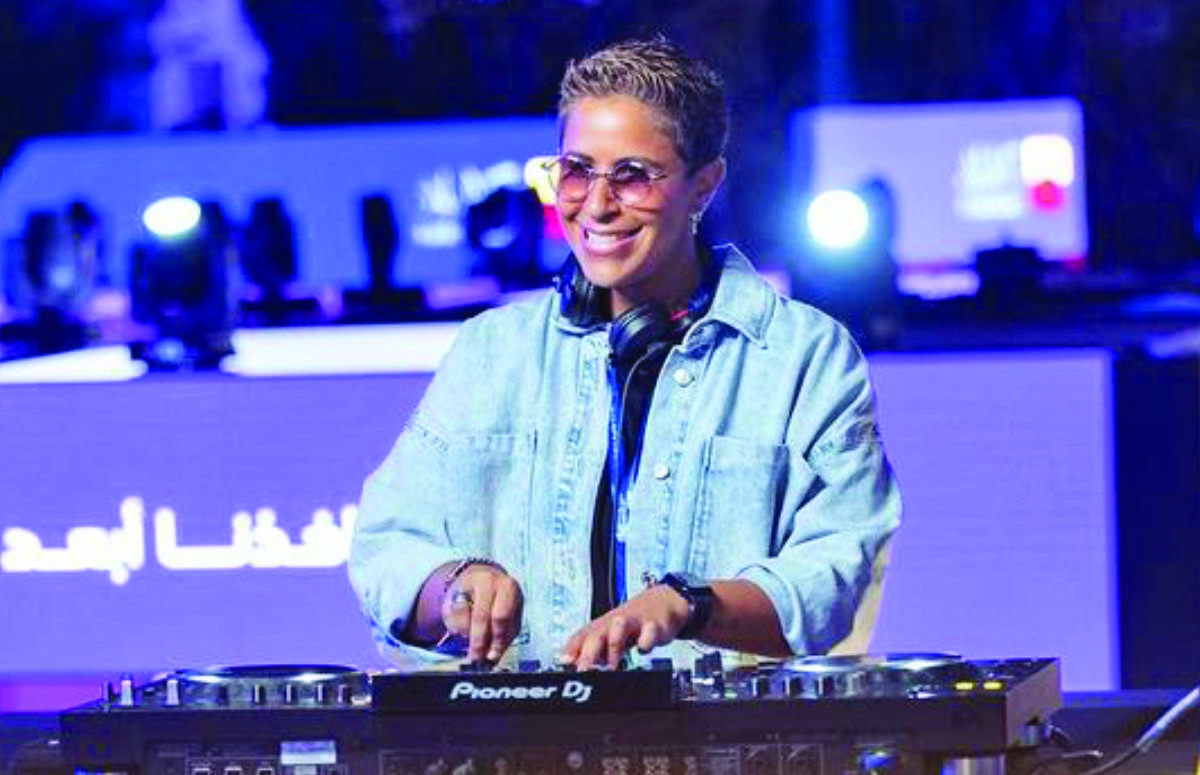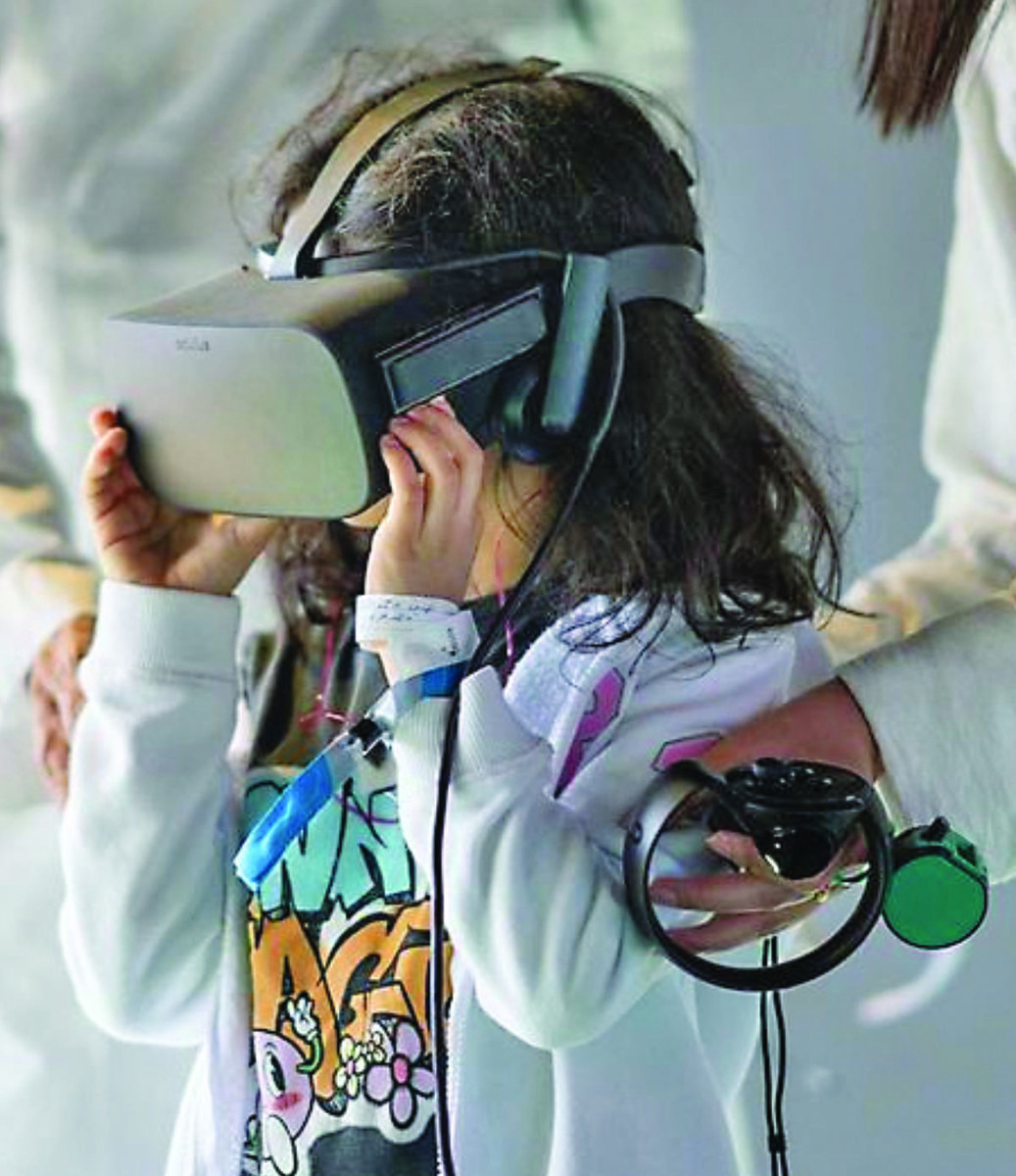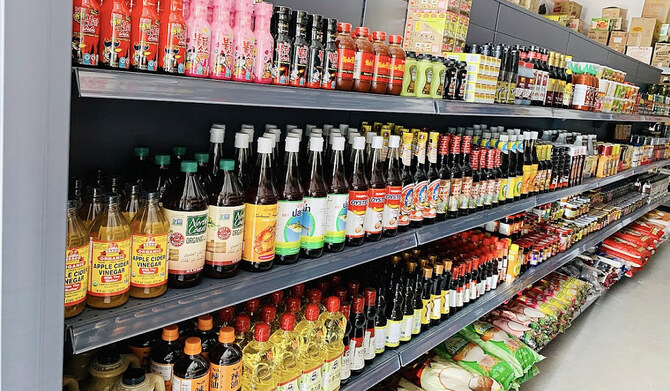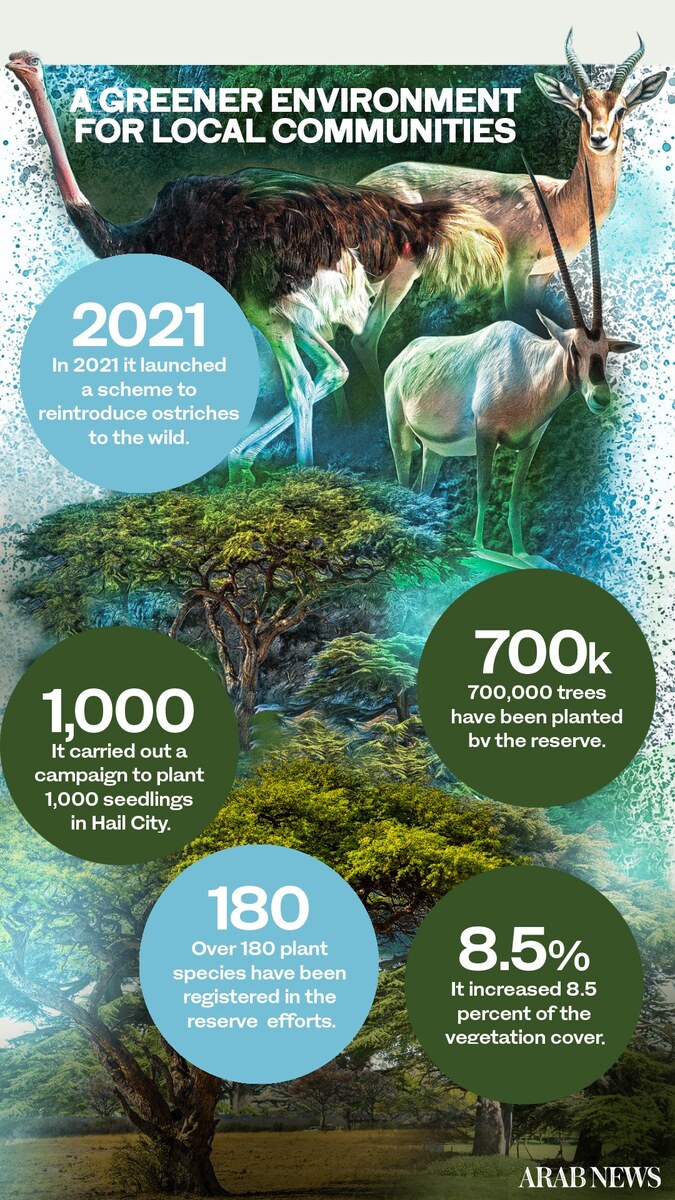RIYADH: ROSHN, a Saudi real estate developer powered by the Public Investment Fund, has proven itself to be one of the leading socially responsible enterprises, adding value to properties while accounting for the Kingdom’s environment and community.
Corporate social responsibility is an important element of enterprises as it increases the economic growth of the country, enhances the well-being of employees and their families, and contributes to the development of local communities and society.
ROSHN’s corporate social responsibility involves, but is not limited to, championing women’s empowerment, implementing policies to protect and benefit the environment, ending poverty on a national and global level, and community volunteering.

ROSHN’s community-geared booth at the Saudi Arabia grand Prix at Jeddah Corniche Circuit earlier this year. (Instagram/roshnksa)
Mohammed Ashour, senior manager of corporate social responsibility at ROSHN, leads the company’s commitment to communities and society at large. “We like to challenge ourselves and raise the bar when it comes to social responsibility, we don’t follow the traditional corporate social responsibility of the past,” Ashour said.
ROSHN’s focus is on improving the quality of life of the community and follows five main pillars: community development, environment and sustainability, art and culture, health and wellness, education and innovation.
HIGHLIGHTS
• ROSHN launched an art program to support local artists.
• Their Yuhyeek program contributes building sustainable and healthy lifestyles for Saudis.
“The five pillars reflect the values of the ROSHN group, and through these pillars we engage in initiatives and programs that support and increase the quality of life and give back to the communities,” Ashour said.
Their main social responsibility program, Yuhyeek, contributes to advancing the social and economic development of the Kingdom as well as building sustainable and healthy lifestyles for Saudis.

ROSHN’s community-geared booth at the Saudi Arabia grand Prix at Jeddah Corniche Circuit earlier this year. (Instagram/roshnksa)
The program also focuses on building development partnerships with leading entities in the non-profit sector, to increase the quality of life and support for underprivileged families in the Kingdom.
ROSHN’s social responsibility program supports and partners with initiatives that make the health, wellness and well-being of the community a top priority.
Saudi Vision 2030 focuses on improving quality of life and building communities through multiple indicators and projectors, and this has inspired the development of the Yuhyeek program, Ashour said.
We like to challenge ourselves and raise the bar when it comes to social responsibility, we don’t follow the traditional corporate social responsibility of the past.
Mohammed Ashour, CSR senior manager at ROSHN
“We have been (in) a proud partnership with the sports federation (Saudi Sports for All Federation), we supported the first marathon in Riyadh, the second marathon, as well as the first Jeddah half-marathon,” Ashour said.
He added: “We have also supported multiple walks and parades and different activities hosted by the ROSHN waterfront in Jeddah.”
Yuhyeek has supported several activities and initiatives for people with disabilities and has engaged in multiple awareness programs, including leading the national breast cancer awareness campaign across the Kingdom with the Zahra Breast Cancer Association.

Mohammed Ashour, CSR senior manager at ROSHN
The program has also adopted accessibility standards across different infrastructures within the communities and promoted sustainability through its tree-planting initiatives. The program includes an environmental sustainability initiative that adopts sustainability and recycling standards across ROSHN offices and sites in the Kingdom, making environmental awareness and a socially conscious and responsible community a top priority.
Investing in art and culture is another important pillar of the program. Through a strategic partnership between ROSHN and the Ministry of Culture, Yuhyeek has supported several initiatives across the ministry’s ecosystem.
The program, in partnership with the ministry, launched the Diriyah Biennale Foundation and was part of the Islamic Arts Biennale hosted for the first time in the Kingdom.

Community volunteering is a prominent part of ROSHN’S CSR. (Twitter @Roshnksa)
“The biennale lasted for four months early this year and it was a huge attraction, and a great platform for visitors as well as locals and residents to visit and know more about the Islamic art across history,” he said.
In its effort to invest in art and culture, ROSHN launched an art program where it partnered with local artists to develop art pieces. Ashour said: “Several of the locally developed art pieces are now located in our sales representative and offices across the Kingdom.
“We are proud of these pieces reflecting the local culture and history, most importantly showcasing and supporting the work of our talented local artists.”
Earlier this year, ROSHN signed a memorandum of understanding with Ehsan National Platform for Charitable Work to promote community-driven and social projects in the Kingdom.
“Since our collaboration with Ehsan, we supported more than 18 initiatives in the last four months alone … initiatives focusing on autism, kidney failure treatments, disabilities, orphans, mobile clinics, and food-saving programs for food banks,” Ahsour said.
One of the largest and leading projects of Yuhyeek was the renovation project in partnership with Tarmeem Charity, in which 75 houses were renovated in seven different regions across the Kingdom.
“We are hoping that this continues and reflects further initiatives by Yuhyeek and to also reach for a bigger social impact,” Ashour said.









































